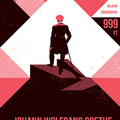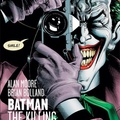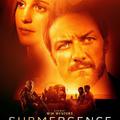Thomas Hardy: Jude the Obscure

Thomas Hardy’s perhaps most bitter novel tells the story of a young man looking for enlightenment and education. Jude lives in a remote village somewhere in the Wessex countryside and from his early childhood he loves books and learning. At the beginning of the story, the village schoolmaster leaves for the university town of Christminster, saying that that is the place for a man to educate himself. Jude is also attracted by the city of learning and he decides that one day he will move there, enroll in one of the famous colleges and by leaving the village and a way of live totally alien to his disposition forever behind, he will finally become a learned intellectual. Jude does everything he can in order to make this dream come true: he spends every spare minute with learning and in the meantime he also learns stone-masonry so that he will be able to earn his bread before being admitted to college.
He receives the first major blow when he meets Arabella, a young woman who only follows her instincts and has no regard whatsoever for intellectual accomplishments. She quickly manages to seduce the young and inexperienced Jude, and before he could think twice, he finds himself married to Arabella.
After some suffering their marriage comes to an end, Arabella emigrates to Australia and Jude finally has the chance to move to the city he’s been dreaming about for ten years. Little does he know that the real difficulties are just about to begin: even though now he lives in Christminster, the famous colleges don’t become more readily available for him, and when a tender attachment forms between him and his cousin, Sue, a beautiful and fragile creature he’s never met before, things take yet another turn for the worse.
All this is only the beginning, but I don’t think there’s a need to describe the plot in any more detail because this is enough to indicate the way the story’s going – namely, that it starts out badly and as the pages go by, everything becomes worse and worse.
I’ve read quite a lot of sad and tragic stories, but I cannot think of another novel in which the life of the protagonist is as hopeless from the very first moment as the life of Jude. There is one single sentence in the whole novel which doesn’t suggest infinite unhappiness, and this sentence goes something like this: „In this period Jude was very happy despite the strains and difficulties of everyday life”. (My italics.) So basically there is half a sentence of happiness in a novel of five hundred page – I guess we are justified in calling Thomas Hardy unmerciful and pessimistic.
But of course Jude the Obscure isn’t simply heartbreaking for heartbreaking’s sake. Despite all its 19th century-ish characteristics (three-dimensional characters undergoing character development; a „normal”, relatively linear story; and the absence of structural, narrative or stylistic tricks), it is very modern novel in which Hardy effortlessly deals with such questions and phenomena as existential angst; the continuous (and often useless) struggle man engages in in order to fulfill the dream of his life; the social and religious conventions which often make it impossible for people to live according to their wishes; or the impossibility to live in a marriage based on equal rights, mutual respect and mutually held values in a society where this is not the norm.
(Just a little example for this: at some point in the novel Jude’s and Arabella’s landlord starts to doubt whether the couple is indeed married, because once he sees Arabella kissing his husband. But later on he hears Arabella thrashing about in the kitchen and shouting with Jude and he happily concludes that in the end they must be respectable since they behave in exactly the same way as any normal married couple.)
Besides the very serious and critical contents, the title and the adjective used there are also worth mentioning. As far as I know, „obscure” is quite an uncommon word (it’s not among the 5000 most frequent words in the English language), so the fact that Hardy chose this word to describe his protagonist makes Jude’s character quite ambiguous and difficult to access. But the word doesn’t only occur in the title: it appears some 10 or 15 times in the text as well, both as an adjective and as a verb, but if I recall correctly, the word is never used directly in connection with Jude. But since the word is rare enough to make its appearance conspicuous and since according to the title Jude himself is obscure, every object, place or event which is characterized by this word in the novel automatically becomes connected with Jude in the reader’s mind and serves to add further touches to his personality.
I don’t know how it would be possible to add these shades to Jude’s personality in another language in which this word doesn’t carry such a multiplicity of meaning as it does in English, so I guess this is a novel which is best read in the original. This is what I did now, and this is what I did several times before. And this is what I’ll do many more times to come, I’m sure, because for me this is one of those novels which keep haunting me with their infinite layers of meaning and with their sad beauty.





